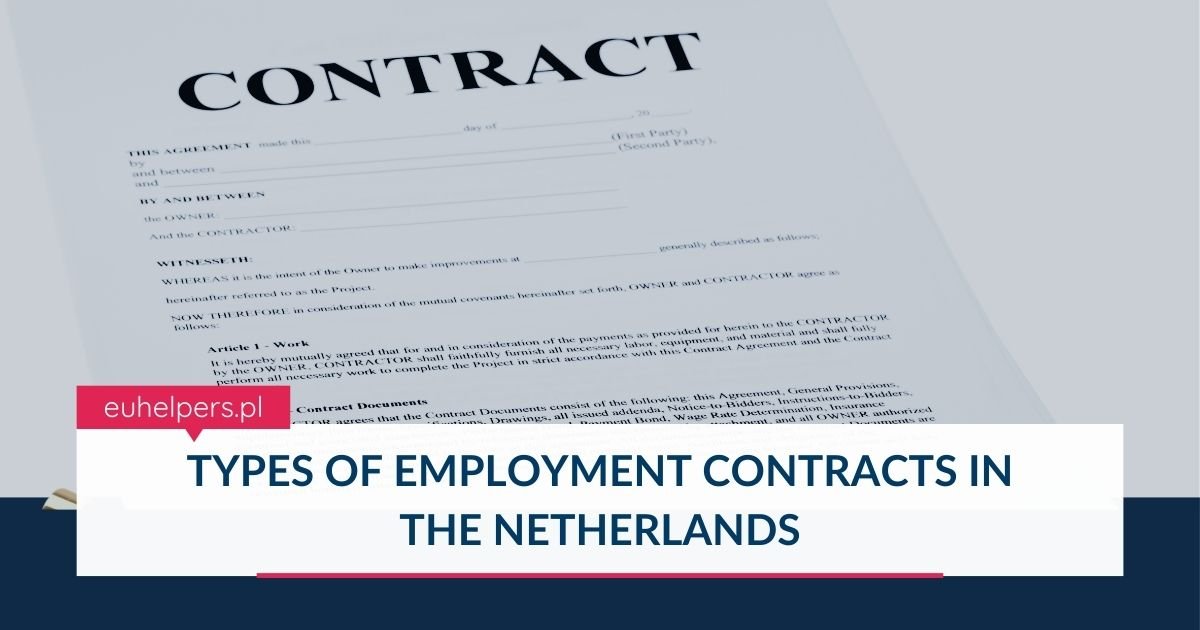When working in the Netherlands, it is essential to understand the different types of employment contracts available. Dutch labor law distinguishes between permanent contracts, fixed-term agreements, and flexible employment forms, each with its own rights and obligations.
1. Permanent Employment Contract (Vaste Arbeidsovereenkomst)
A permanent contract offers long-term job security. Once an employee enters into this agreement, they are guaranteed stable employment, and the employer cannot terminate the contract without a valid legal reason. This type of contract typically follows a series of temporary contracts and provides more extensive employee rights, including protection against unjust dismissal.
2. Fixed-Term Contract (Tijdelijke Arbeidsovereenkomst)
A fixed-term contract is valid for a specific period, such as six months or one year. It offers flexibility for both parties but does not guarantee long-term job security. If an employer decides to offer successive fixed-term contracts, Dutch law stipulates that after three consecutive contracts or a total employment period of three years, the employee must be offered a permanent contract.
3. Probationary Contract (Proeftijd)
A probationary period is often included at the start of employment, allowing both the employer and the employee to evaluate the suitability of their working relationship. This period typically lasts between one and two months, depending on the contract's duration. During probation, either party can terminate the contract with immediate effect, without prior notice or reason.
4. Full-Time Contract (Voltijd)
A full-time contract generally entails working 36 to 40 hours per week, depending on the industry and the employer’s regulations. Employees with full-time contracts are entitled to benefits such as paid leave, sick pay, and other employment rights defined by Dutch labor law.
5. Part-Time Contract (Deeltijd)
Part-time contracts involve working fewer than 36 hours per week. This option is popular among individuals who wish to balance work with other commitments, such as studies or family responsibilities. Part-time employees are entitled to the same legal protections as full-time employees, with benefits calculated proportionally.
6. Flexible Employment Forms
In addition to traditional contracts, Dutch labor law recognizes flexible employment arrangements, including:
- Zero-hour contracts: Employees are only paid for the hours worked and are not guaranteed a fixed number of hours.
- On-call contracts: Workers are called in as needed, providing flexibility for employers but less stability for employees.
- Freelance or self-employed contracts: Known as zzp'er contracts, these are for independent contractors who are not in direct employment relationships.
Understanding the distinctions between these contract types is crucial for both employees and employers in the Netherlands. Each form of employment offers different levels of security, flexibility, and rights, making it important to choose the one that best fits your needs and career goals.

